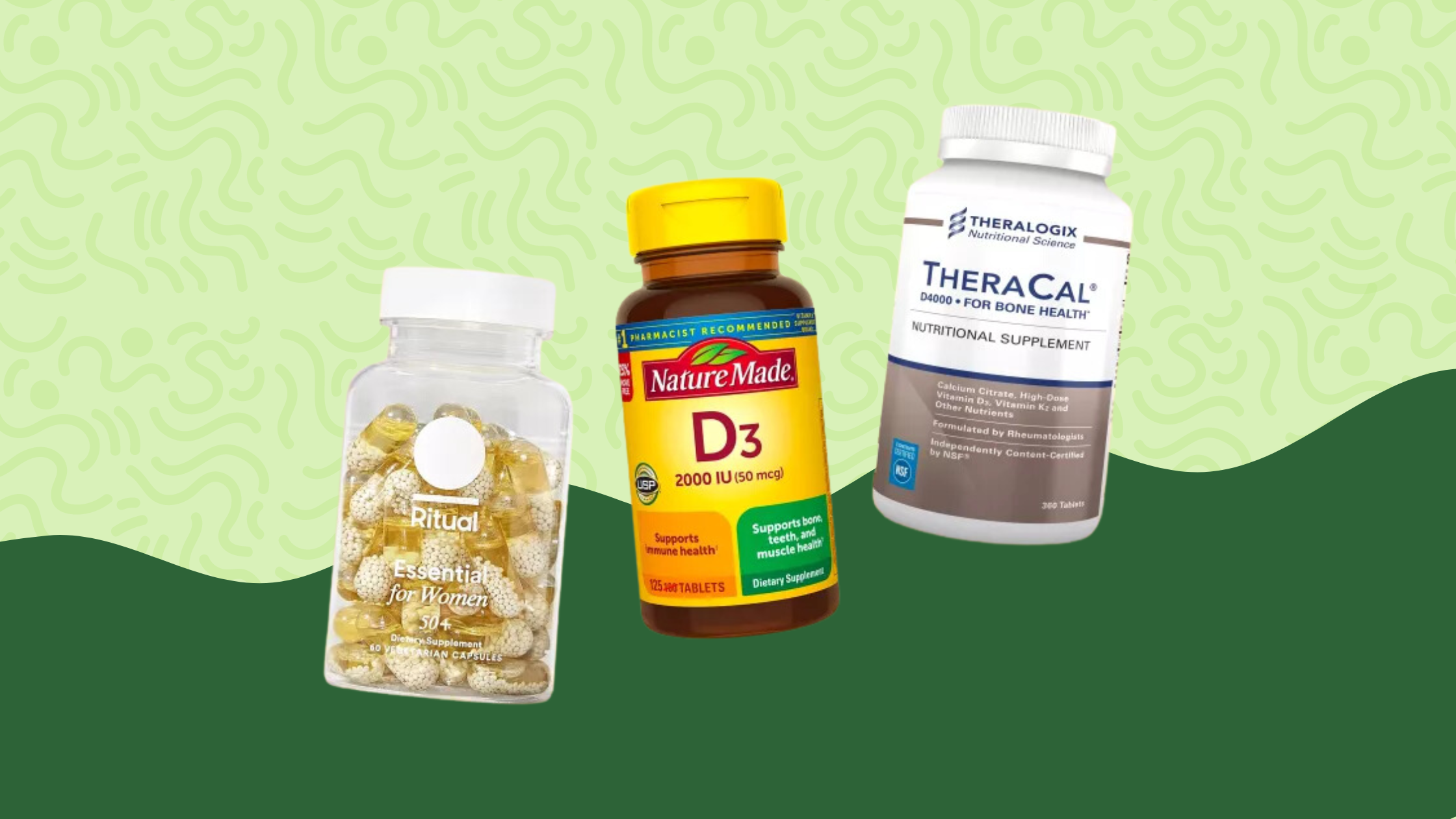


Medically Reviewed By Margaret Etudo, BPharm. Written By The Vitamins For Woman Team.
A shift in hormonal levels can significantly affect your well-being. Instead of using medications or hormone replacement therapy (HRT), consider B-complex vitamins for hormonal imbalance.
All the vitamins in the B complex are water-soluble vitamins, which literally means they are soluble in water. Unlike fat-soluble vitamins, they are readily absorbed and not stored in the body. It is hard to take excess amounts of these vitamins, and even if you do, they will be excreted from your body via your urine.
Besides their role in energy production, these vitamins are good for hormonal imbalance. If you are dealing with PMS (premenstrual syndrome), infertility, irregular periods, or even menopausal symptoms, then you may be deficient in one or more of these vitamins. You need to incorporate them into your diet to get the daily recommended amounts.
Now, let’s explore the uses of vitamins for hormonal imbalance.

The B complex vitamins are a group of 8 essential vitamins. These water-soluble vitamins are necessary for the proper functioning of your cells. They work together to help you stay healthy and support several bodily processes. The vitamins in the B complex are:
This vitamin is essential for normal cell function. It helps to:
This vitamin is popularly called ‘the skin savior‘ because it maintains the growth and health of your skin. Riboflavin is needed for:
You can find this vitamin in your food and supplements in two primary forms – nicotinic acid and nicotinamide. Your body also makes small amounts of vitamin B3 from an amino acid called tryptophan, found in protein foods. It aids:
This anti-stress vitamin is responsible for the following:
It exists in three major compounds: pyridoxine, pyridoxal, and pyridoxamine. Its coenzyme forms activate over 100 enzymatic reactions. Vitamin B6 is also involved in:
Vitamin B7 supports healthy hair, nails, and skin. This vital coenzyme is responsible for the digestion and metabolism of food substances as well as:
Vitamin B9 can be found in two major forms – folate in food and folic acid in supplements. They are often used interchangeably and essential for:
This is the most structurally complex vitamin. Here are some functions of vitamin B12 in your body:
While you can get B vitamins from a healthy diet, you may need more. Deficiency of any B vitamin can affect hormonal balance. Here are some symptoms you should look out for:
You may be experiencing a vitamin B deficiency, but these symptoms may be due to other preexisting conditions. If you notice any of these symptoms, speak with your doctor immediately.
Several factors can contribute to vitamin B deficiency. Some of these include:
Not consuming a balanced diet contributes to insufficient amounts of vitamin B. If your diet lacks lean proteins, whole grains, fruits, and vegetables, you are more likely to be deficient in one or more B vitamins. This also applies to women on a vegan or vegetarian diet who are more susceptible to vitamin B complex deficiency.
Certain underlying illnesses, like Crohn’s disease or celiac disease, are intestinal disorders. They impact the digestive tract and affect the body’s ability to absorb vitamins.
Excessive alcohol intake also inhibits the absorption and usage of B vitamins. Alcohol also makes your kidneys produce more urine, flushing B vitamins out of your body faster.
Transitional periods like menopause and pregnancy increase the need for vitamin B complex. These vitamins support fetal brain development in pregnant and breastfeeding women. Also, the absorption of essential vitamins declines as you age, causing you to need more B vitamins than usual.
The recommended daily dosage of B vitamins is typically higher for such women. Consult your doctor to confirm the proper dosage for your needs.
Certain medications can cause nutrient loss, reducing your body’s absorption of B vitamins. Anticonvulsants and corticosteroids increase the likelihood of vitamin B6 deficiency. Metformin, proton pump inhibitors (PPIs), antacids, long-term antibiotics, and antidepressants increase the possibility of vitamin B12 deficiency.
If your symptoms worsen while using a medication, speak to your doctor.
The vitamin B complex works together to balance hormones in the body. However, you can take specific B vitamins for hormonal imbalance. These include:
This vitamin aids the production of sex, stress, and sleep hormones. It metabolizes and regulates estrogen and progesterone. Studies show that it stabilizes your menstrual cycle and reduces PMS symptoms.
When you are stressed, your body releases cortisol from your adrenal glands and supplies you with enough glucose to help you run when you are in danger. Healthy cortisol levels help prevent depression and anxiety and support overall hormonal health.
This vitamin is essential for synthesizing progesterone and cell division in your ovaries. Healthy folate levels can help promote regular ovulation. Studies also show that it reduces hot flashes and night sweats in menopausal women.
This vitamin is vital for producing sex hormone-binding globulin (SHBG), neurotransmitters, thyroid and adrenal hormones. SHBG is a protein that transports hormones in the blood. Balanced SHBG levels support hormone delivery and function. It also supports the production of serotonin and dopamine, the happy and reward hormone. These neurotransmitters regulate mood and stress response.
Vitamin B12 converts inactive thyroid hormone to its active form, improving thyroid function for some women. However, more research is needed. It is also required to produce adrenaline and cortisol, which reduces stress levels.
You can only get some vitamins from your diet, so you may have to use supplements when there is a shortage. The good thing is that B-complex supplements work together in synergy. For instance, B6 and B12 are popular vitamins for women’s hormonal balance. However, they are more potent and effective when combined.
Deficiencies of these vitamins are also very similar and can be hard to identify. In most cases, one of these vitamins can’t be deficient. The deficiency of one will affect the healthy balance of others. So, taking all eight B vitamins together is a better way to address potential deficiencies and fill nutritional gaps.
This approach supplies enough vitamin B for hormonal imbalance and overall hormone support.
There are two ways of consuming vitamin B complex. These include:
You can eat foods that are rich in vitamin B for hormonal balance. Some of these include:
The B complex vitamins work together to help balance hormones in the body. However, vitamins B6 and B12 are vitamins for women’s hormonal balance.
Vitamins B6, B9, and B12 act as cofactors in synthesizing and regulating essential hormones and neurotransmitters. You can take vitamin B complex for hormonal imbalance, which helps to maintain healthy hormone levels.
Vitamins B6, B9, and B12 are good for ovulation. They regulate estrogen and progesterone levels and support reproductive health. Women with B6, B9, and B12 deficiency often struggle with infertility.
If you’re struggling with irregular periods and PCOS, vitamins for hormonal imbalance, especially vitamin B complex, might be all you need. These essential vitamins play a role in hormone production, metabolism, and regulation within the body. Instead of resorting to hormone replacement therapy, ensure that you give your body the nutrition it needs from quality B foods.
Taking vitamin B6 for hormonal imbalance helps stabilize menstrual cycles, reduce PMS symptoms, and support fertility in women. B9 (folate) and B12, vitamins for women’s hormonal imbalance, are also helpful. However, taking the full B-complex ensures full nutritional coverage.

medically reviewed by margaret etudo, BPharm. written by the vitamins for woman team.
hey vitamins for woman, was wondering if taking b-complex vitamins can help me feel less tired thru the day? any advice would be awesome, thanks.
Interesting article. However, I believe you’ve oversimplified the interactions between B vitamins and hormone balance. In reality, the biochemical pathways are much more complex and varied individual to individual.
Got any sources for that, Alex_TheGuru? Would love to dive deeper!
I’ve been taking a B-complex for stress and it really seems to help me. It’s good to understand exactly what each vitamin does!
love this stuff, been adding b-complex to my routine and its been a game changer for my workouts.
every article says something new. Yesterday it was vitamin C, today it’s B. Can’t trust these flip-flopping articles.
It’s beneficial to understand the various roles of B-vitamins. Incorporating them into technology-driven health tracking could offer comprehensive wellness insights.
If B-vitamins make you smart, I’m buying them by the truckload! Maybe then I’ll understand my wife’s hints.
Hey, can anyone tell me if the vitamin B complex is better taken in the morning or night? Does it make a difference?
I take mine in the morning since I think it gives me a bit of energy. At night might keep you awake!
One should consider the bioavailability of these vitamins in supplement form compared to their natural occurrence in foods. Not all forms are created equal.
So glad to see more info about B12, it’s super important for us vegans! Love that this is getting attention.
[…] supplements containing high-quality B vitamins are great options to ease hormonal stress and regulate hormone production levels. You can find this group of vitamins in foods like […]
[…] as a popular B vitamins but did you know that you can use biotin for hair growth? The popular B vitamin processes your body’s use of proteins, carbs, and lipids as sources of energy and nutrition. […]
[…] the best support, choose high-quality multivitamins formulated specifically with essential vitamins and minerals like vitamin D, zinc, and magnesium as a PCOS all natural treatment. Never forget […]
[…] For Woman is a highly regarded women’s health and wellness brand that is always interested in your overall health and wellness journey. To start with, we have […]
[…] healthy red blood cells and communicating the right time to generate new cells. Reintroducing B complex vitamins into your body through supplements can fuel your body’s need to perform […]
Can you be more specific about the content of your article? After reading it, I still have some doubts. Hope you can help me.
[…] B6, also known as pyridoxine, is one other B-complex vitamins and it is water-soluble vitamin meaning that it cannot be stored in the body and any […]
Can you be more specific about the content of your article? After reading it, I still have some doubts. Hope you can help me.
[…] play a significant role in keeping hormones in check; among them, Vitamin B6 and Vitamin B12 are two of the most […]
[…] B vitamins are water-soluble nutrients involved in hundreds of biochemical processes, including cellular energy production, red blood cell formation, nervous system function, and mood regulation. […]